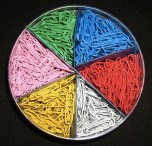Obsessive Compulsive Disorder, or OCD, is a behavioral anxiety disorder with both physical and psychological components. It manifests itself with persistent, unwanted thoughts and an overwhelming urge to perform certain behaviors repeatedly, often in a ritualized manner. OCD has a severe impact upon those suffering from it, as they find themselves overwhelmed by anxiety and spending many hours in attempts to satisfy these urges.
People in the grip of OCD may find their minds circling certain thoughts again and again. They experience intense feelings of anxiety. The only thing that brings some relief is performing very specific behaviors, but even then, the relief is only temporary.
Obsessive Compulsive Disorder has two components. Obsessions are thoughts, images or impulses that are persistent and will not go away. These thoughts or images are usually unpleasant: thoughts of contamination by germs, chemicals or even just dirt; a fear of harming oneself or others; a fear of forgetting to lock a door; or a generalized fear of something horrible happening. Obsessive thoughts can be about perceived personal failings: not knowing or remembering important information, or a fear of losing things. Obsessive thoughts can take any form, but they are always anxiety-producing.
Compulsions are behaviors that temporarily relieve the feelings of anxiety that obsessive thoughts create. They may be related to the thoughts, or seemingly random. Washing hands repeatedly is a common compulsion, as is arranging personal items in a particular order, or lining them up exactly even. Many compulsions are repetitive: checking that the door is locked not just once, but three or five times, for example, or needing to hang up the telephone three times at the end of a call. Compulsions are usually ritualized; people with OCD feel they must do a set of actions in the same order each time.
While many people enjoy routines, have high standards of cleanliness or love being very organized, this is not the same as OCD. With OCD, these routines do not feel voluntary. The person feels imprisoned by their obsessive thoughts and compulsive behavior. They may even try to hold off doing their ritualized behaviors, but they ultimately find it impossible to resist. This interferes with normal life, as much time is spent in performing these behaviors. A person with OCD may have little or no time left for activities that are enjoyable. OCD suffers may be afraid that social activities will interfere with their ability to perform their anxiety-relieving behaviors. The anxiety that is part of OCD is as debilitating as the behaviors themselves.
In everyday use, people may speak about being “obsessed” with something, or “compulsive” about something, but this casual use is different from clinical OCD. People who use these terms as a figure of speech do not feel enslaved by their thoughts or actions. People with OCD understand, on an intellectual level, that their fears are groundless and their behaviors are unnecessary. But they still have little control over their thoughts or actions.
People may develop OCD at any stage of life, although it is most common for it to appear during puberty or adolescence and early adulthood. It is estimated that perhaps one in one hundred adults in the US have OCD.
Although the exact cause of OCD is unknown, there does seem to be a physical component. Differences in how the brain is wired, or genetic differences, may be the culprit. Scientists are studying the role of serotonin in OCD.
Serotonin is a natural chemical in the brain that carries messages from the deeper part of the brain associated with primitive emotions such as fear to the “higher” parts of the brain associated with thinking, planning and speech. Medications that affect serotonin levels can be helpful in treating OCD. Cognitive behavior therapy (CBT) can also be helpful. With CBT, a person learns to use tools to identify and question thoughts which lead to compulsions, or to interfere with and break patterns in other ways. CBT may include desensitizing oneself to the triggers that provoke anxiety, with the therapist’s guidance. Often, a combination of medications and CBT can bring a dramatic easing of the symptoms of OCD. About seventy percent of OCD sufferers benefit from therapy and medication.
For help with OCD, search for a therapist who specializes in the treatment of OCD and related disorders. Treatment is usually on an outpatient basis, although more intensive residential programs are also available. In addition to treatment with a licensed therapist, support groups may also be beneficial for those battling OCD.
OCD can be treated, and those whose lives are diminished by this ailment can find relief. The chains of OCD can be broken. With proper care and treatment by a licensed therapist, OCD suffers can return to a life filled with positive and enjoyable activities.
